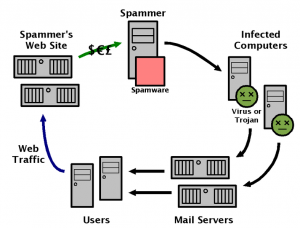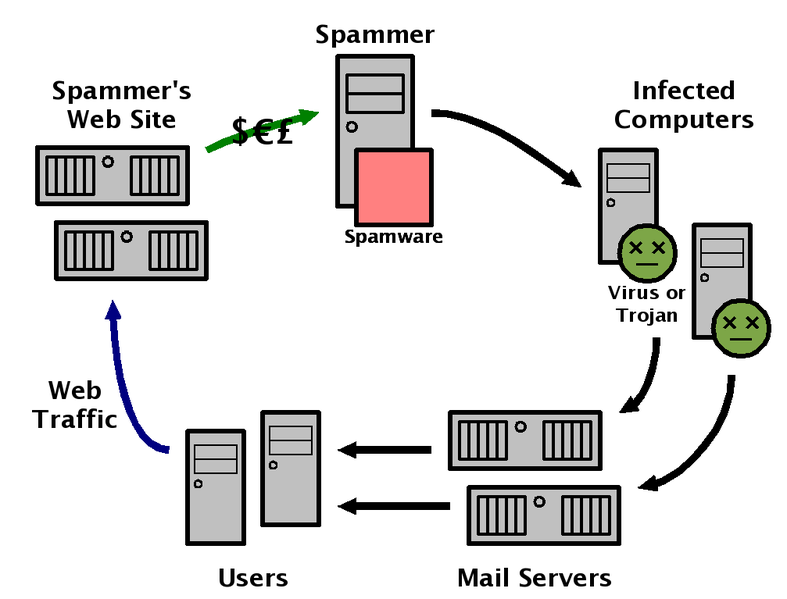Do you use email for your business? Many small businesses don’t realize they must comply with the federal CAN-SPAM Act (Controlling the Assault of Non-Solicited Pornography and Marketing). Here are five common email marketing myths that can get you into trouble:
 Myth #1: Can-Spam is only for big business with bulk email
Myth #1: Can-Spam is only for big business with bulk email
Not so. The CAN-SPAM Act covers virtually all email with the primary purpose of advertising or promoting a commercial product or service – even if it’s not sent in bulk. If you use email for marketing or if you publish a newsletter that is delivered by email, then you still need to make sure that you are CAN-SPAM compliant. The CAN-SPAM Act covers all commercial messages, which the law defines as “any electronic mail message the primary purpose of which is the commercial advertisement or promotion of a commercial product or service,” including email that promotes content on commercial websites. The law makes no exception for business-to-business email. That means all email – for example, a message to former customers announcing a new product line – must comply with the law. Each individual violation of CAN-SPAM regulations is subject to fines of $16,000. Can your business afford $16,000 for every email sent?
Myth #2: ‘Creative’ subject lines are expected in email marketing
Not so. The subject line must clearly and accurately reflect the content of the message.
Myth #3: No one needs to know where you’re located
Not so. The e-mail must be from who it claims to be from, and recipients need to know how to reach you in the real world. It can be a post office box or your physical address. (Many Email Service Providers will only send your e-mail if it contain a physical street address).
Myth #4: Unsubscribe instructions are only for bulk emailers
Not so. Each message must include a “clear and conspicuous” unsubscribe mechanism in every email explaining how the reader may opt-out of future messages from you, and the law gives you just 10 days to honor opt-out requests.
Myth #5: Email service companies can take care of compliance
Not so. You need to know what others are doing for you. CAN-SPAM makes clear – and recent FTC cases have further established – that you can’t “contract away” your responsibilities by hiring another company to handle your email marketing. If you hire a company to handle your e-mail communications, you and your company can still be held legally responsible for messages sent on your behalf.
Now you won’t be mislead by the five most common myths. Although you’ll want to review your company’s email policies with your attorney, you can learn more about CAN-SPAM basics in everyday language from the FTC’s Compliance Guide for Business.



Email Marketing and CAN-SPAM Compliance: 5 Small Biz Myths: http://t.co/axRgeBs4 via http://t.co/FYF34Mdt. #EmailMarketing #CanSpam #Myths